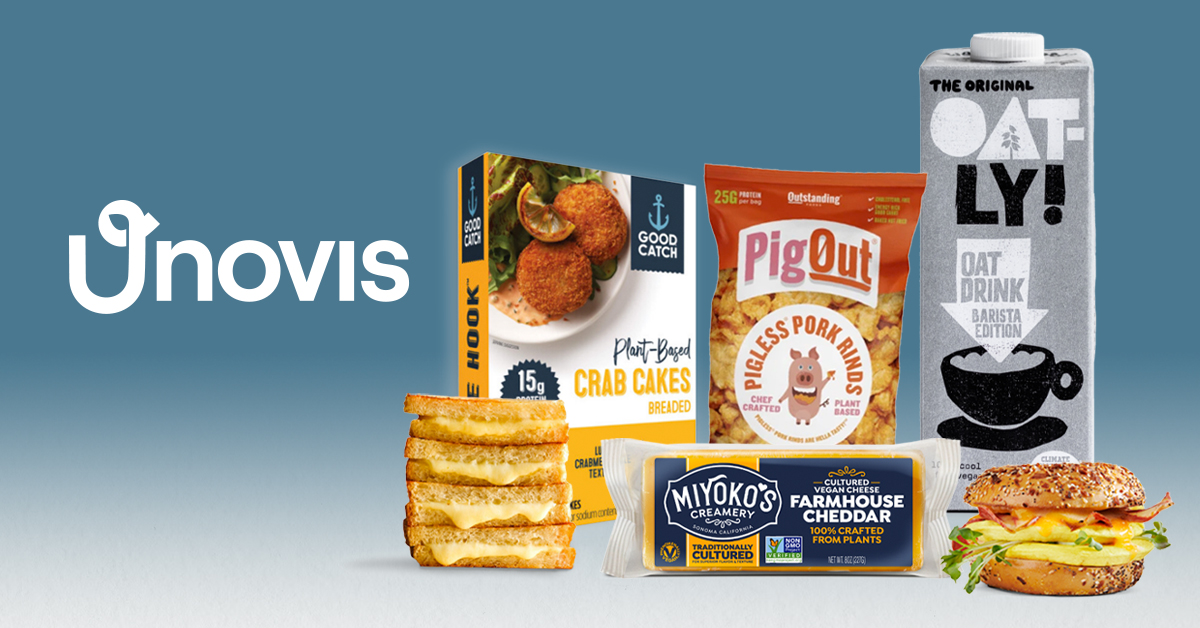Unovis Closes Fund II to Back ‘A Menu’ of Plant-Based Options

Unovis Asset Management announced yesterday that it has closed a second fund valued at roughly $162 million as the New York-based venture capital firm plans to invest in companies that offer consumers ‘a menu’ of plant-based food options.
Founded in 2015, the impact firm is an active investor in the global plant-based food and beverage market, backing brands such as Aleph Farms, Miyoko’s, SuperMeat, Black Sheep, Zero Egg, Memphis Meats, Good Catch, NuMu and Noops, as well as several food tech companies including Geltor.
Unovis’ first fund, New Crop Capital Trust, was backed by one individual. While that investor has remained a part of the second fund, the firm has also added other institutional investors, impact funds and strategic partners, including Invest-NL, Unigestion, Credit Suisse, Fuji Oil, and Griffith Foods.
“We wanted strategic investors that are in the industry. We wanted institutional investors that would pay attention to what we’re doing next. And we wanted investors who would co invest alongside us,” Unovis Founding Partner and Chief Investment Officer Chris Kerr, said. “I couldn’t have curated a better outcome.”
Despite the new limited partners, the new fund will carry over the firm’s existing investment thesis, writing check sizes of $1 million to $10 million in seed to series B rounds. Though, Kerr said, the firm’s sweet spot is up to $5 million and does not invest in many seed or prevenue rounds. The capital will fund 20 to 25 transactions, Kerr said, with 16 deals already completed since Fund II’s first close in Oct 2020.

With offices in New York City and Amsterdam, Unovis also plans to open a new office in Israel, headed by managing partner Dan Altschuler Malek — a move that comes as the group increasingly has backed Israeli brands. Having an Amsterdam office and raising the capital in Europe, Kerr said, allowed the firm to attract European investors who are “way ahead” when it comes to environmental, social, and governance (ESG) metrics. Both overseas offices will also allow Unovis to quickly expand brands from one country to another market, as it has done previously in bringing Wicked Kitchen from the United Kingdom to the U.S., with fund operating partner Pete Speranza running the business.
Rather than investing in only one brand per category, Unovis backs any and all brands that offer plant-based products or technologies, a strategy that Kerr said is about both accelerating global adoption of plant-based protein and a reflection of how consumers eat.
“People don’t eat the same thing every day because if they did, it would be a very sad world,” Kerr said. “So our thesis is ‘what’s for dinner?’ …If we have a whole menu of items, from cheese, meat, to aggregate products like Wicked, all of those things are how we eat. We don’t want to be delusional that there’s only one thing that we’ll eat and that’s plant based chicken. What we want is all of it.”
Rather than generating awareness and lifting the category overall, Kerr said that the “frenzy” of high-valuation deals in the plant-based market has largely built brands that must think more about short term financials than about larger opportunities.
In contrast, Kerr said Unovis’s limited partners know the firm is “in it for the long haul,” picking impact over “hype.” Considering the long runway to market for some of its brands in food tech areas like cellular agriculture and new fermentation technologies, that patience will be key.
“Everyone investing in this sector who starts with a mandate of impact should be focusing not on the transaction at the end of one’s ownership, but asking if the company can survive to institute, in perpetuity, its impact purpose,” Kerr said. “A greater fool theory can rule the day for transaction-focused investors. Those investors are everywhere, and they move from industry to industry as profiteers. But this mentality can ruin the fate of a company that is trying to do good for the world. We need a balance.”















